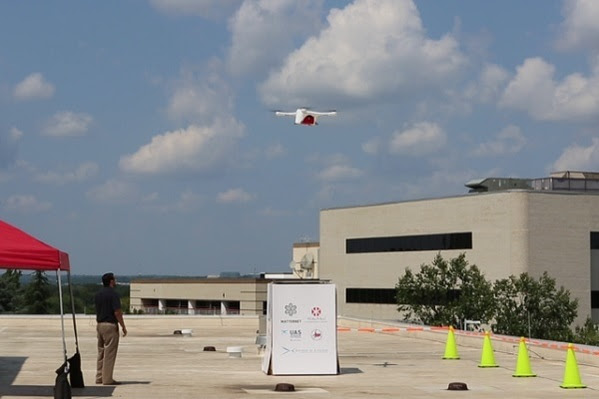The FAA’s UAS Integration Pilot Program has been busy accelerating drone technology in four states this month.
“Data gathered from these pilot projects will form the basis of a new regulatory framework to safely integrate drones into our national airspace,” U.S. Transportation Secretary Elaine L. Chao at the May 9 announcement of the 10 selectees.
“We’re working with state, local, and tribal governments and private industry to demonstrate and study expanded drone operations,” said Acting FAA Administrator Dan Elwell. “This program gives us a better understanding of how operations over people, beyond visual line of sight ops, and flying drones at night work at the local level.”
Successful flights in North Carolina, Virginia, Kansas and Oklahoma demonstrate how the FAA’s program awardees are using drones in innovative ways to assist in their communities in their day-to-day duties. Just yesterday, WakeMed Health and Hospitals successfully flew a Matternet drone in Raleigh, N.C. to demonstrate how drones can be used to deliver medical supplies to rural areas. In other flights, the Virginia Tech Mid-Atlantic Aviation Partnership and the FAA teamed up to successfully complete the country’s first long-distance drone delivery test; an ice-cream cone was delivered to a child. The Kansas Department of Transportation and the FAA flew a drone beyond visual sight, a giant step towards advancing drone technology to help precision agriculture and infrastructure inspections. In Oklahoma, the Choctaw Nation and the FAA demonstrated how drones can be used to bait feral hog traps.
The FAA UAS Integration Pilot Program is opening the door for new opportunities in commerce, photography, emergency management, agricultural support and infrastructure inspections.




